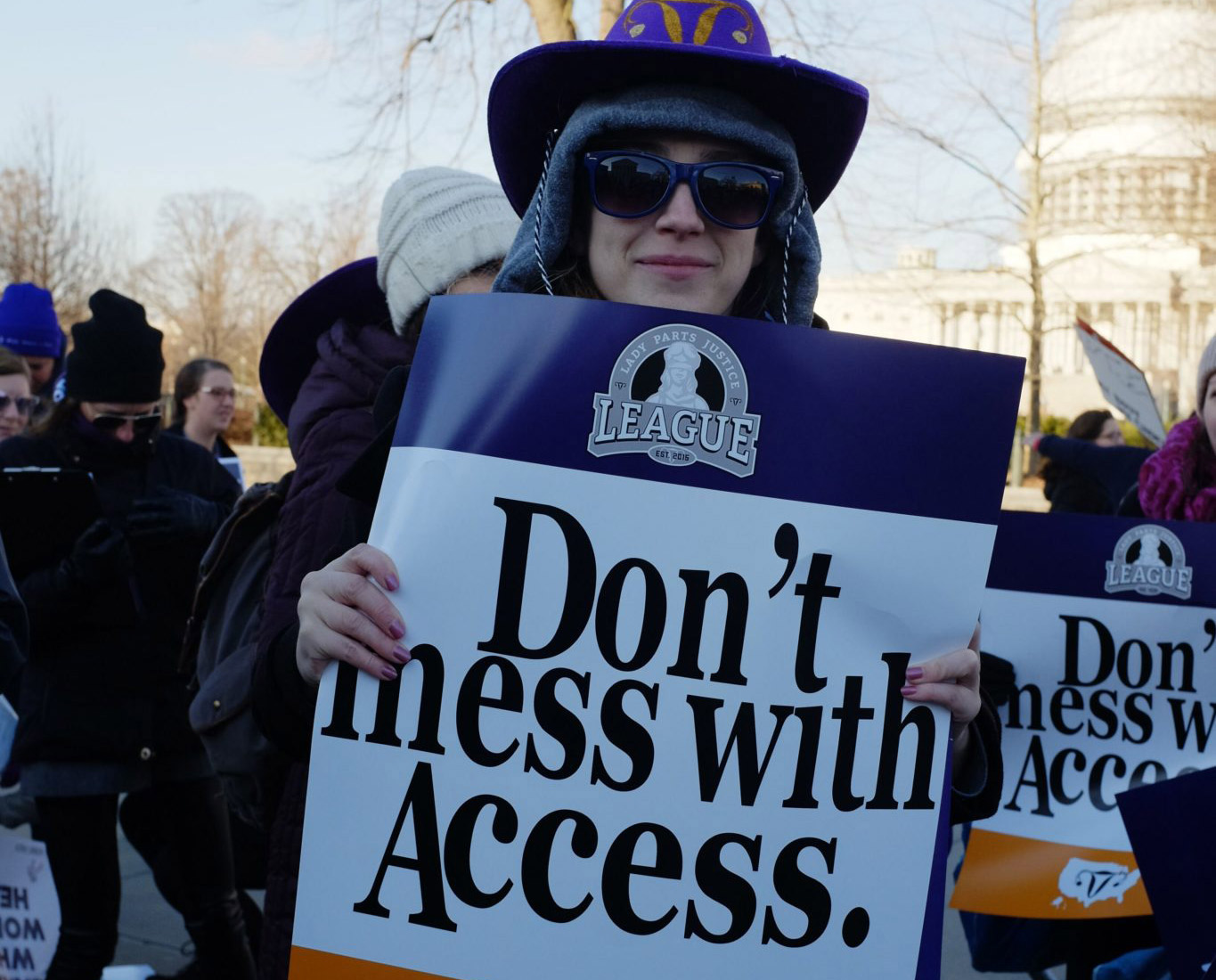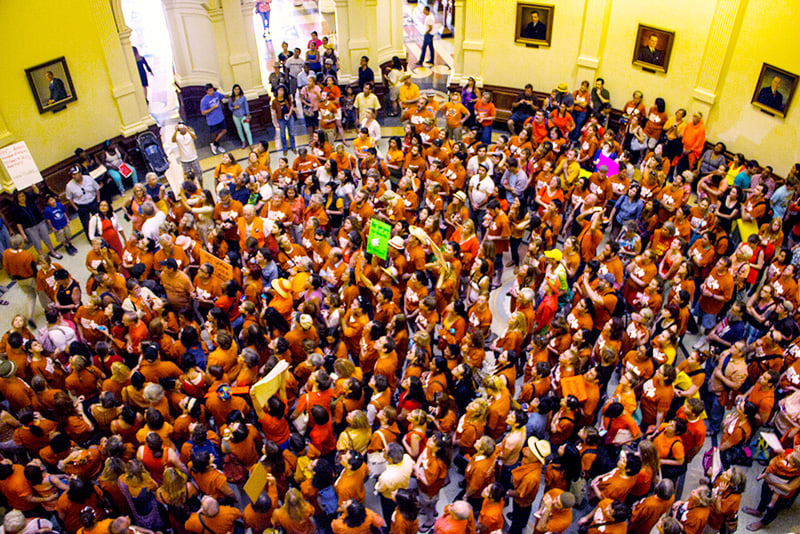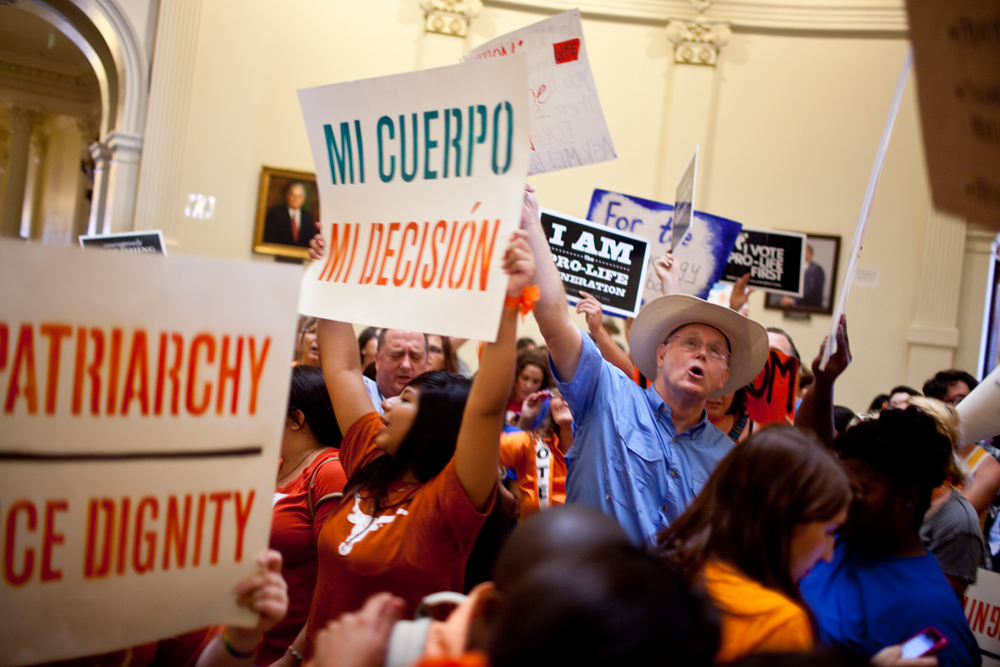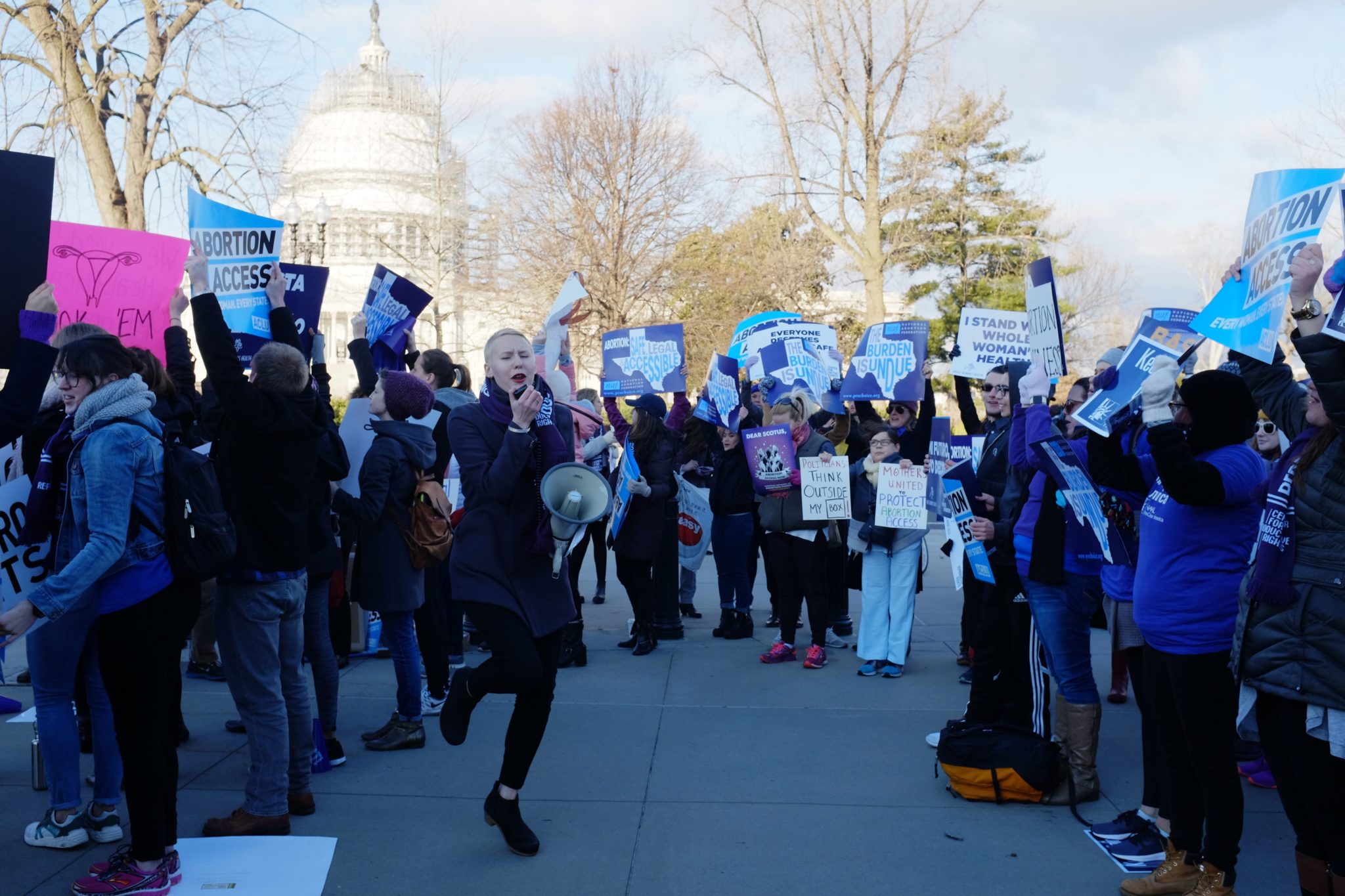
Abortion Providers Anxious for ‘Era of Uncertainty’ to End

After years of legal wrangling over Texas’ omnibus anti-abortion law, the Supreme Court is expected to rule in the coming weeks — or, potentially, days — on what has been called the most important abortion case in decades: Whole Woman’s Health v. Hellerstedt.
At stake: a national precedent that would establish the degree to which states can regulate abortion — or not.
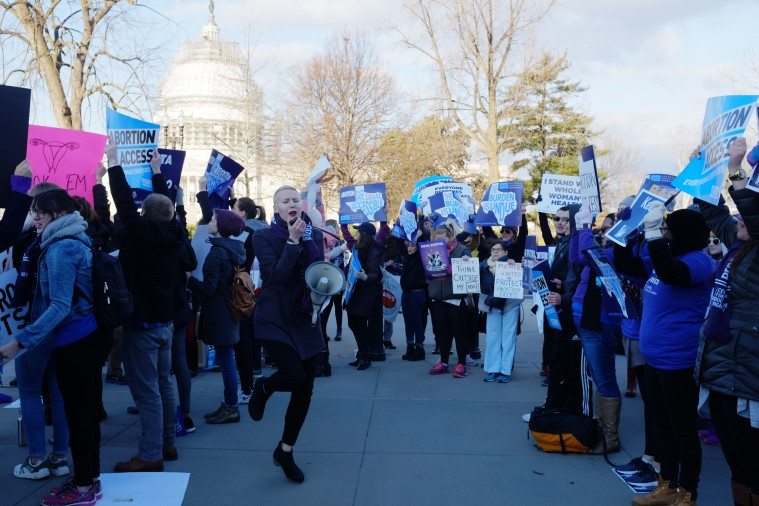
“We have a situation in Texas where a right exists on paper, but it is out of reach for a tremendous amount of Texas women,” Amy Hagstrom Miller, CEO of Whole Woman’s Health and lead plaintiff in the case against House Bill 2, said on a press call Tuesday.
Hagstrom Miller said waiting for a Supreme Court decision has “put a tremendous strain” on abortion providers, whose practices have been in limbo for almost three years as two separate legal challenges have made their way through the courts — Hellerstedt all the way to SCOTUS.
“We’ve had to try to figure out how to keep our facilities open … and how to remain high quality abortion providers and endure the onerous restrictions,” she told reporters. “We’re looking forward to ending the era of uncertainty.”
Texas passed HB 2 during a special legislative session in 2013. The law requires doctors who provide abortions to obtain admitting privileges at local hospitals, and mandates that abortion clinics operate as hospital-like ambulatory surgical centers. Major medical groups, including the American College of Obstetricians and Gynecologists, opposed the regulations, saying they would “jeopardize women’s health.”
More than half of Texas’ abortion clinics have closed since HB 2 took effect. Attorneys with the Center for Reproductive Rights, which represents Texas abortion providers in the case, argued before the Supreme Court in March that the law places an unconstitutional “undue burden” on Texans who seek abortions.
Researchers at the University of Texas’ Texas Policy Evaluation Project, which tracks the impact of restrictions on abortion access, have found that HB 2 has forced Texans to wait longer for appointments, take on increased travel costs and obtain their abortions later into pregnancy.
Hagstrom Miller and her attorneys said they’re hopeful that the Supreme Court will ultimately strike down HB 2, even though conservative justices on the court seemed skeptical about the law’s effect on clinic closures during oral arguments earlier this year.
“We are optimistic that the Supreme Court will say once and for all that politicians can’t use flimsy justifications to impose regulations that create substantial obstacles” for women seeking abortions,” said Center for Reproductive Rights president Nancy Northup. “This is a watershed moment for reproductive rights.”
Catch up on the case before this month’s anticipated SCOTUS ruling with highlights from the Observer’s coverage of HB 2:
- Senate Approves HB 2 Seventeen Days After Wendy Davis’ Filibuster
- The Last Two Rural Abortion Clinics in Texas Close
- Federal Judges Disregard Impact of Abortion Law on Poor Women
- Texas Abortion Clinics: Safe, Legal, Increasingly Rare
- Texans Face Longer Wait Times After HB 2
- Texas Abortion Provider: ‘It Doesn’t Have To Be This Way’
- The Texas Abortion Case, Explained
- I Trust Women. I hope the Supreme Court Does, Too.
- SCOTUS Takes Up Texas Abortion Case As Activists Gather to ‘Stop the Sham’
- Report: Abortion in Texas Has Become Harder to Access, More Expensive
- La Frontera Fund Joins Texas’ Growing Circle of Abortion Access Groups after HB 2
